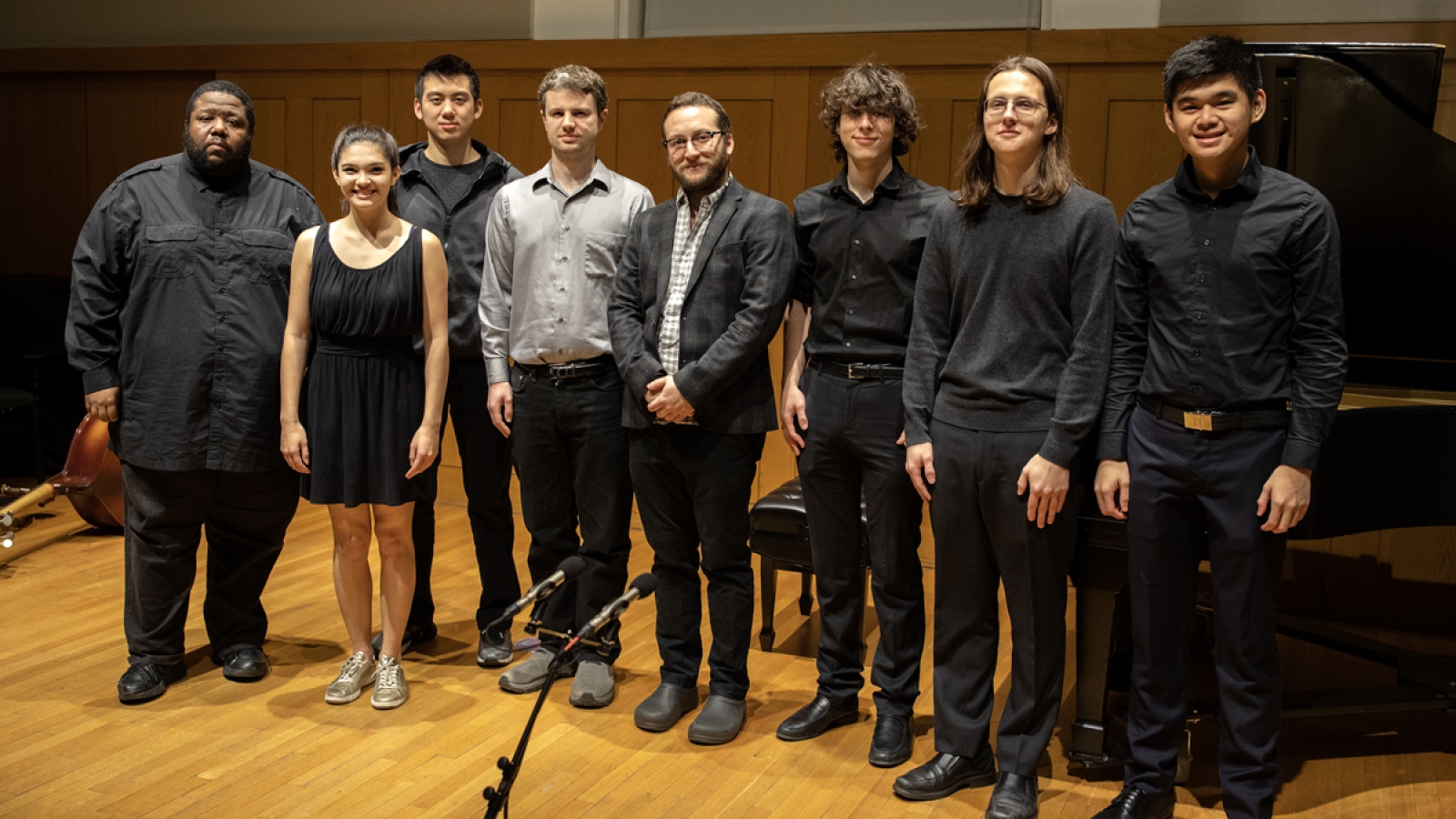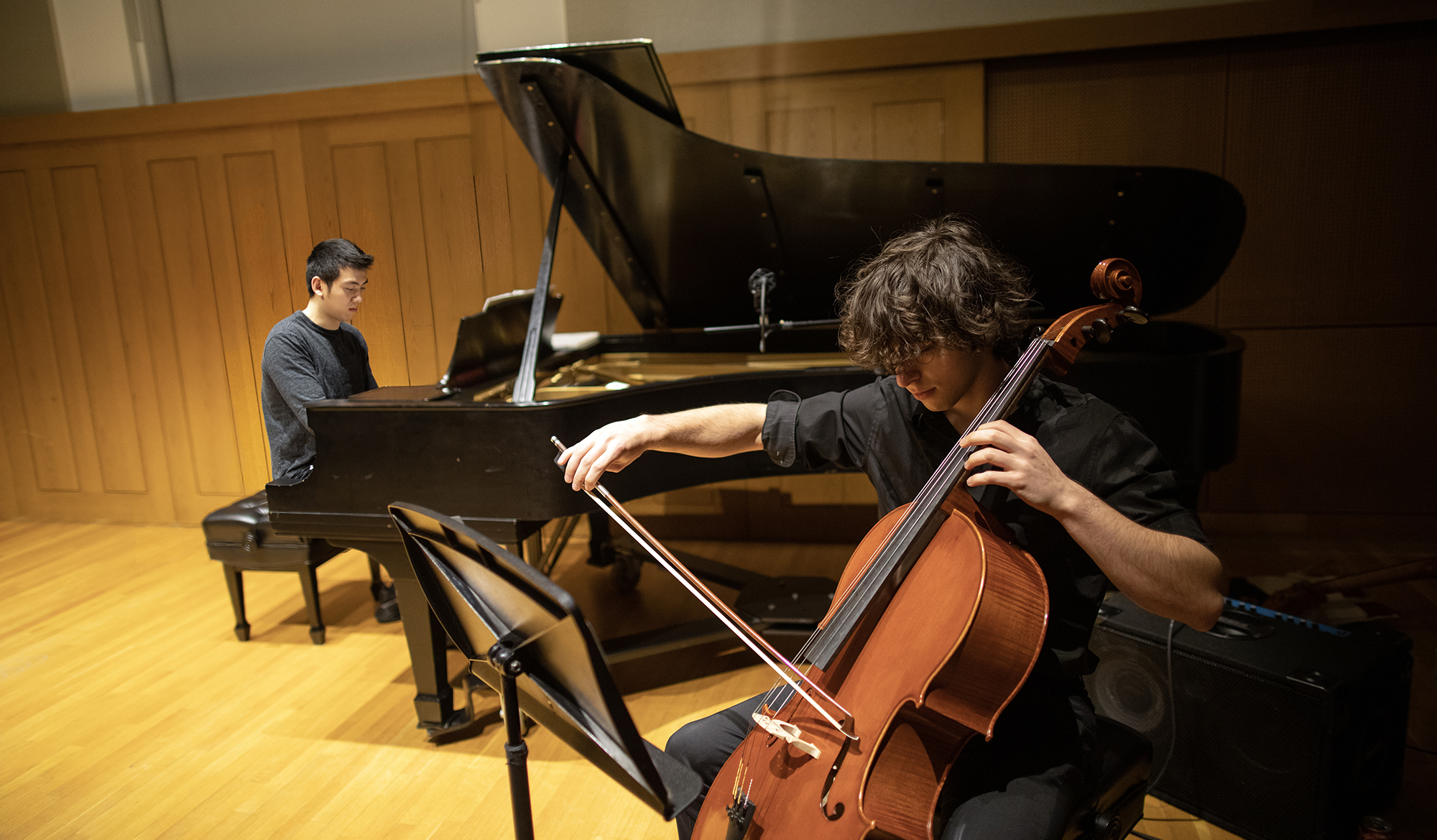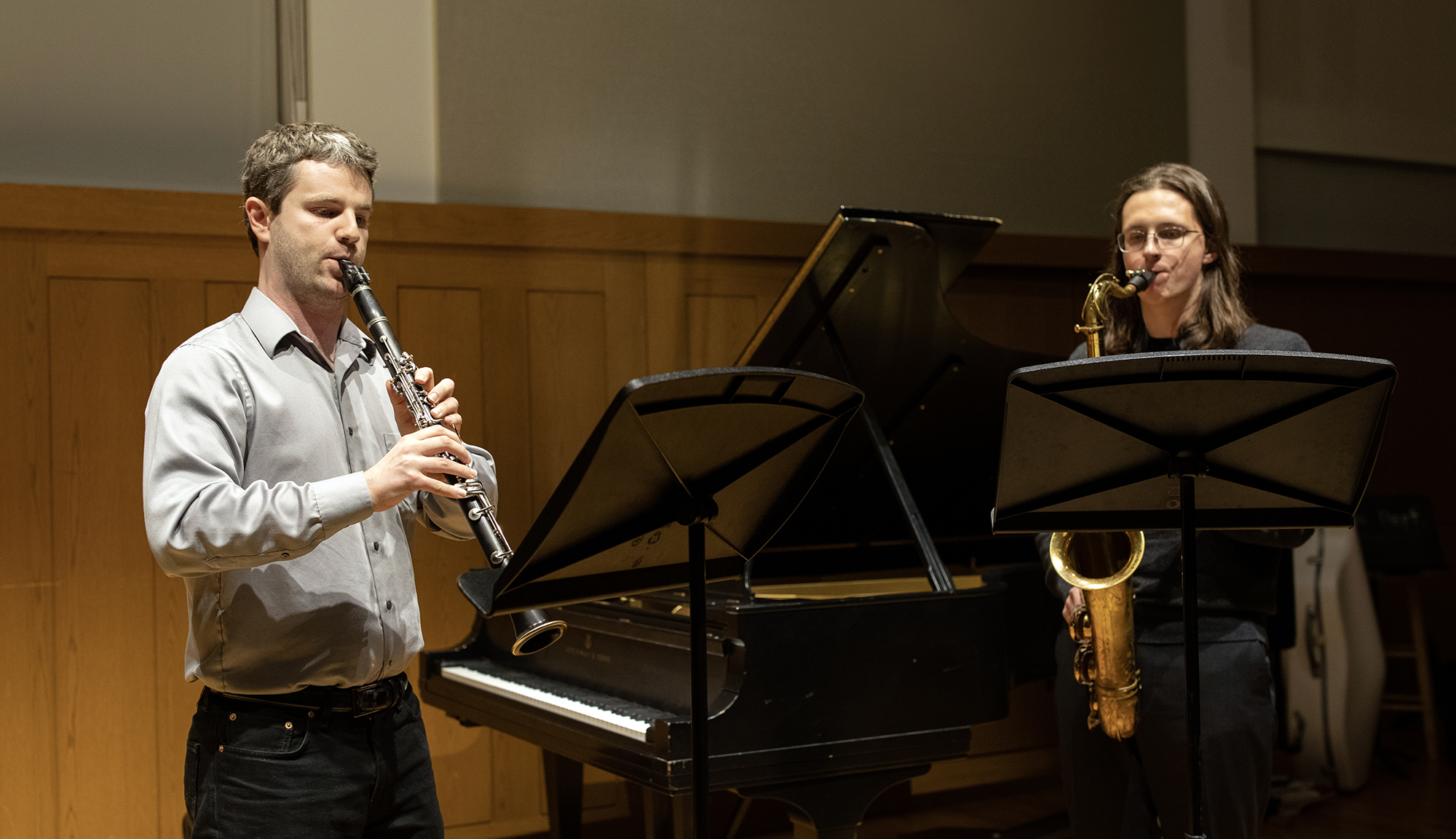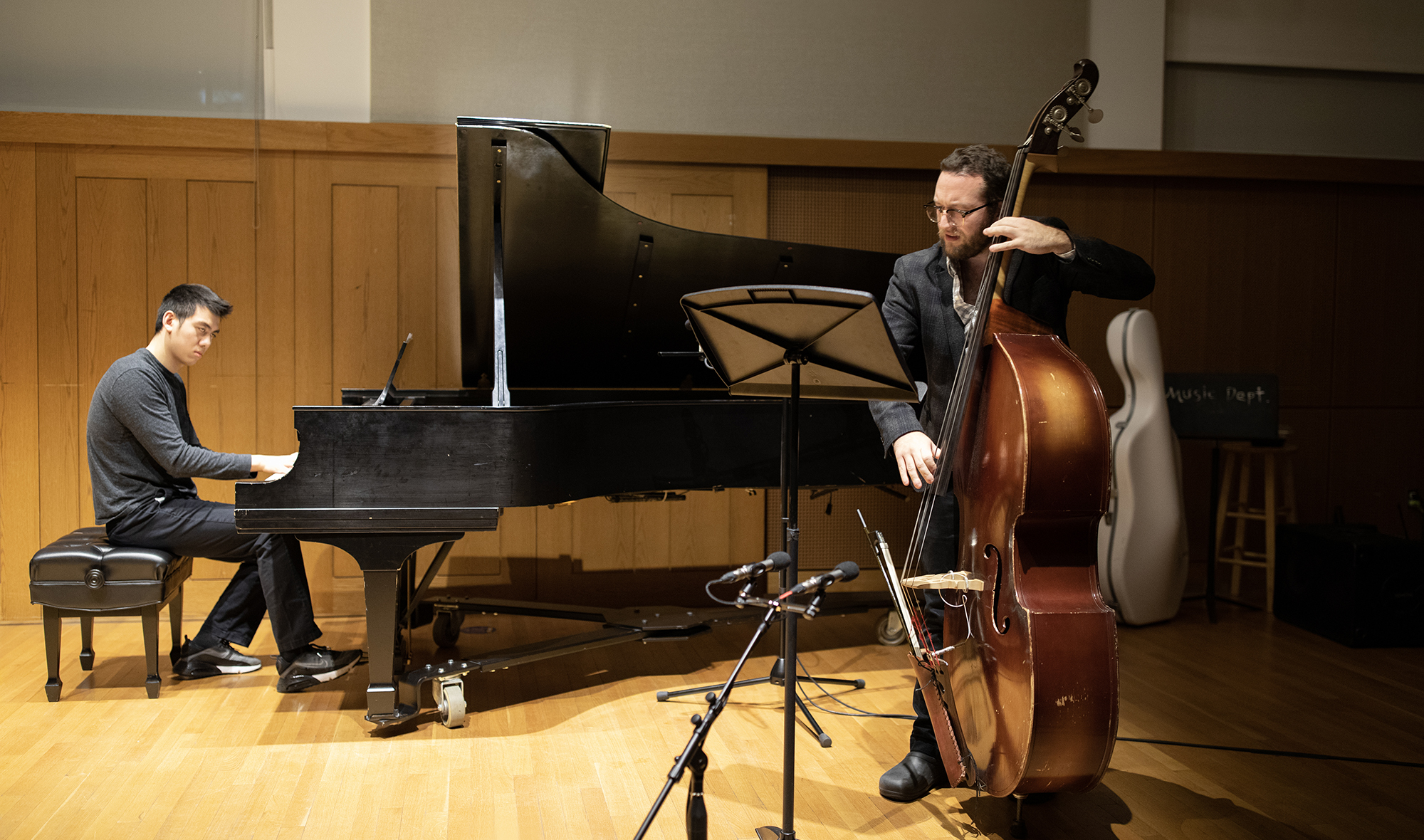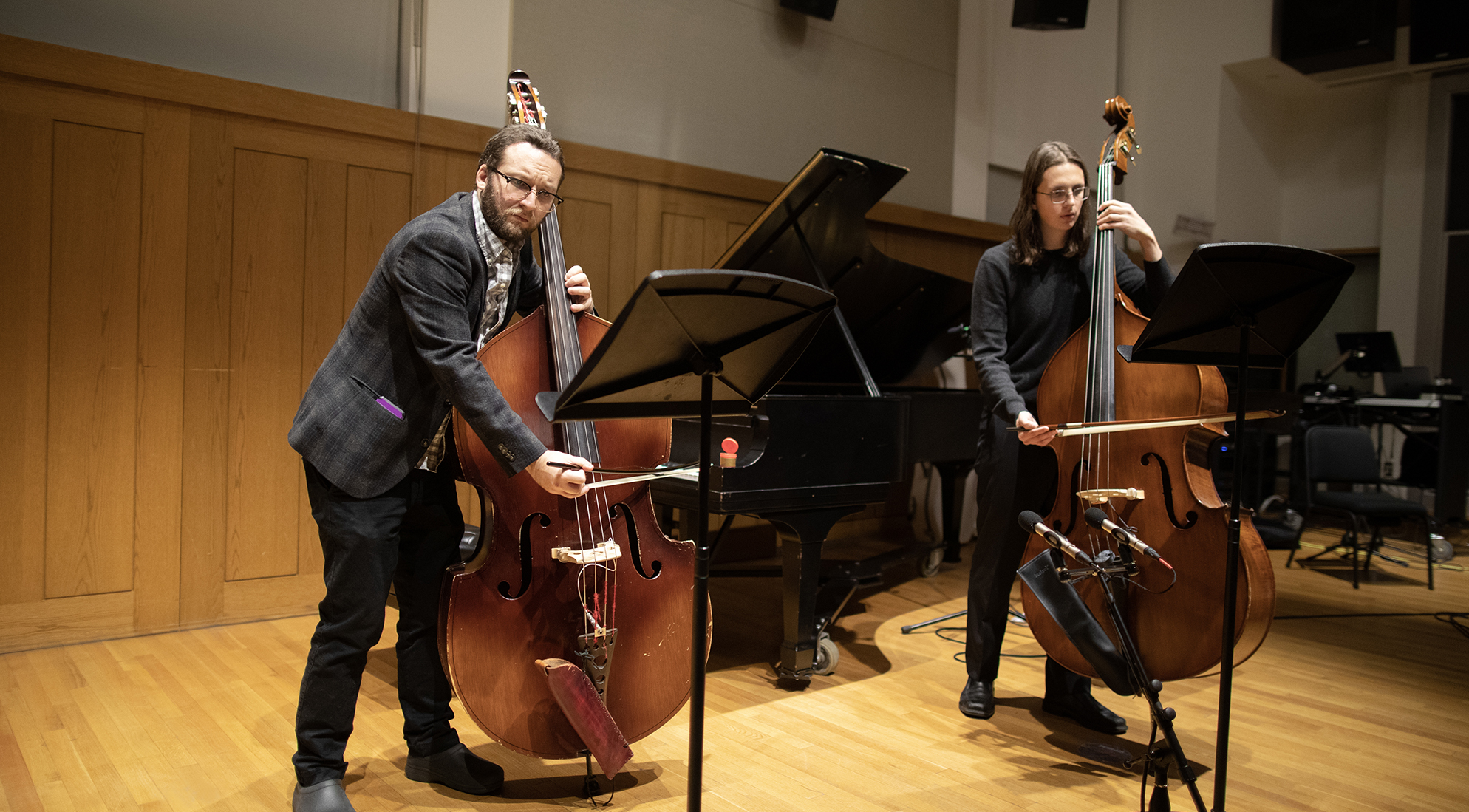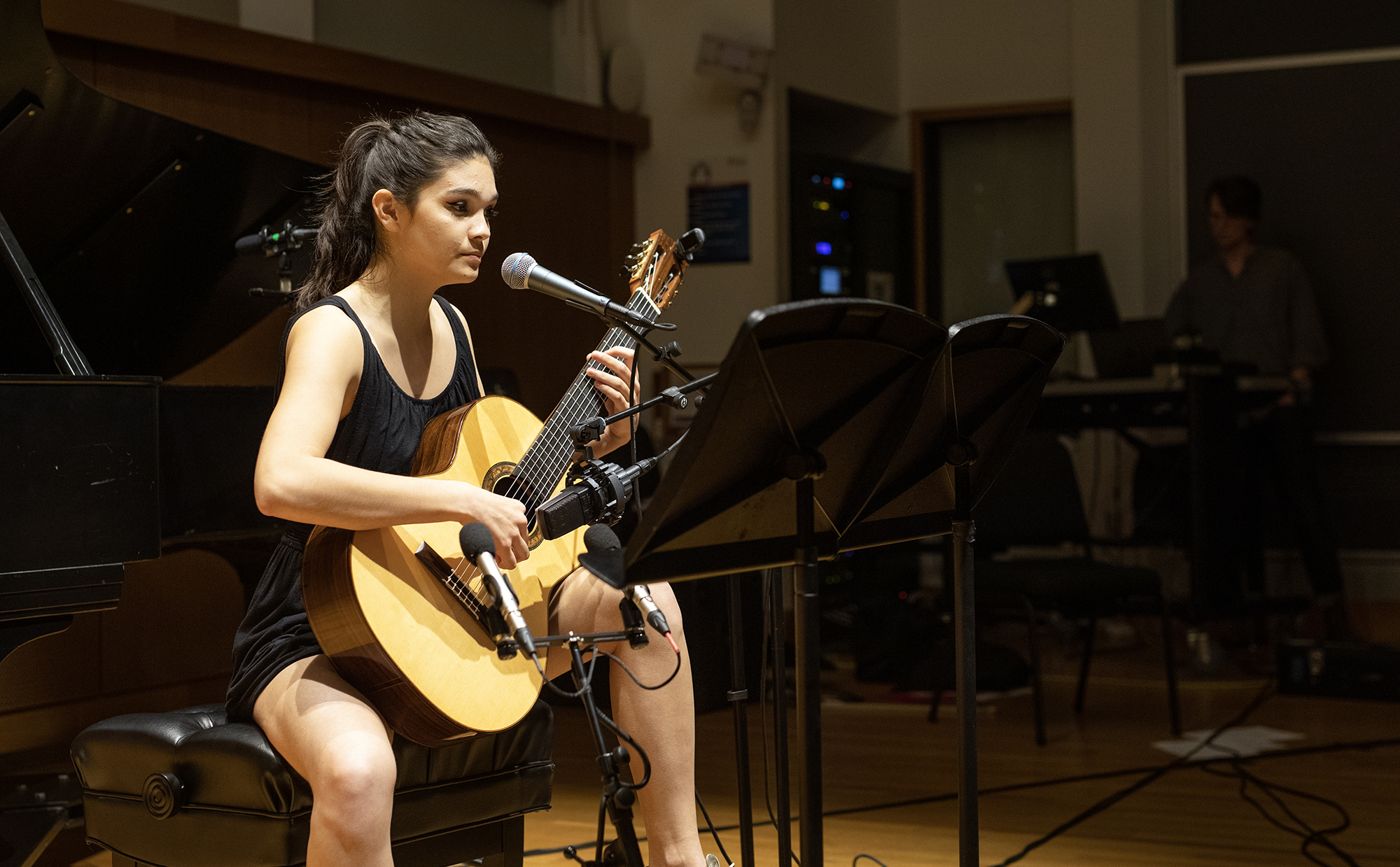For renowned musician and composer Tyshawn Sorey, performing is a vital part of learning about music and how to compose. The Presidential Assistant Professor of Music taught two courses during the fall semester: Performance, Analysis, History for undergraduates, and the graduate-level Composing with Performers. The students in both classes came together for a concert called Re-Imagining Music Composition and Performance, which realized what they had learned.
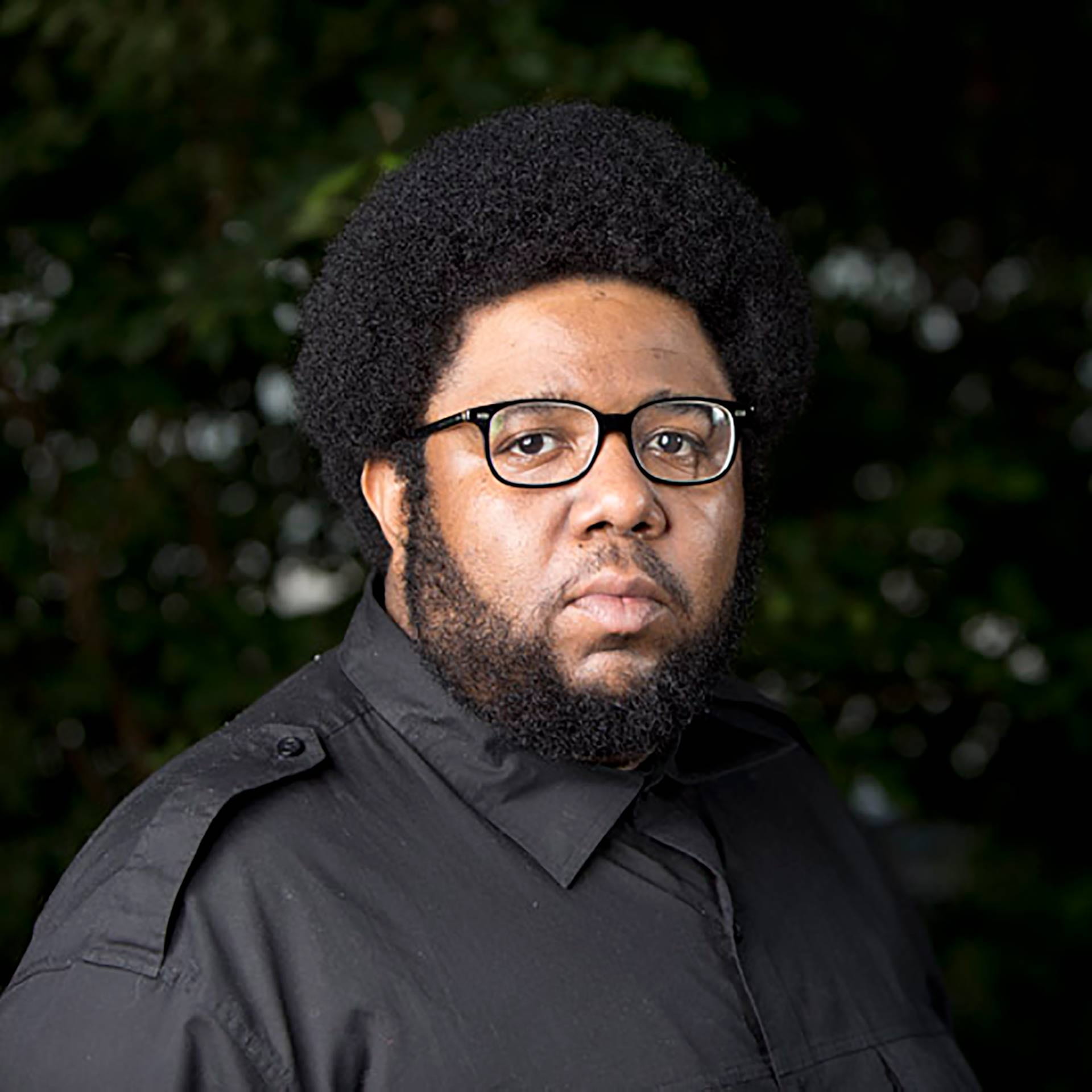
“Seeing how people perform or how they play with other people in the room, versus when simply rehearsing by themselves, they tend to play better and give a hundred percent, or more than a hundred percent,” Sorey says.
The students also played music throughout both courses. “There wasn't a day where we weren't performing in real time,” says Eric Wang, C’23, W’23. “I really liked how we would talk about something and then do it right away.”
Sorey believes that music theory and musicianship go hand in hand. “It helped the students realize, okay, well, here's what's going on in the music. How can I reinforce this in performance? Or how can I reimagine this, based on these theoretical concepts that were brought up?” he says. “So all of these things led to the concert.”
The undergraduate students reimagined works by composers like Mozart, Fauré, and Brahms. “I learned you can really take any piece of music, change it in such a way that does conform within the boundaries of music theory and what sounds good to the human ear, but then also inject some kind of spontaneity within it,” says Lance Keiffer Sy Lato, W’23.

Lance Keiffer Sy Lato (voice) and Eric Wang (piano)
Performing re-imagined Gia il sole dal Gange by Alessandro Scarlatti (excerpt)
“One piece we worked on is Elegie by Faure, which carries a lot of weight because it was written after his wife died,” says Daniel Gerhardt, C’25. “So, part of the goal in reimagining it was to not lose that feeling. That meant kind of stretching it out a little bit, adding in more somber lines, and some solos that would kind of show off the instruments and what they could do, but not take away from what the piece was.”
Performance, says Sorey, “gives students the opportunity to really take some chances and to really understand that, while, yes, there are interpretations of music that very much remain timeless, the students themselves should also feel that they can reinterpret pieces of music, and hopefully give us another perspective with which to hear the music.”
Sorey pushed the students out of their comfort zone, says Sy Lato. “There are multiple ways to hear music, but I think, especially at the start of the class, we all heard music in pretty much the same way. But then with his guidance and with his encouragement, we really kind of took the music to places that we never thought we could.”
The goal of the graduate-level class, Composing with Performers, was to explore and mine for possibilities the space between a score and the performance of a score. Because almost everyone in the class was a performer as well as a composer, Sorey had them compose for and work with each other. “Real time performance was a crucial part of the course,” he says, “so that we could give feedback when necessary.”
“We worked on our compositions collaboratively, which is something that is fairly rare in the academic setting,” says third-year music doctoral student Brendan McMullen. “I think it's really valuable to bring those skills together and work on musicianship in general, to be writing a score and workshopping it with other musicians.”
Wang, who also took the graduate class, says he learned “that you have to be open-minded in the way that you pursue what you're writing, because oftentimes, the idea that you have at the beginning is not what the music ends up being, and you have to be comfortable with trying out new things. Also, the fact that it's perfectly okay to have improvisation in the composition, which is something that was new to me.”
Both classes encouraged improvisation as another way to learn about and create music. “I think improvisation gives one the time to really investigate the possibilities,” Sorey says. “One has to be really open to exploring those possibilities. The students have to believe that anything is possible.”
"Working with Tyshawn is a wonderful experience because he has such a breadth of knowledge of many kinds of music and an inhuman musicianship of being able to kind of hear what's going on at all the times, and kind of divining where you're coming from and which lineages and how to kind of give a number of different suggestions of ways to strengthen that," says graduate student Max Johnson.
Andrew Burke, a first-year graduate student, felt “like every day was a master class in composition as well as orchestration with Dr. Sorey. He just has incredible ideas about composition and sort of asks you questions that prompt you to think about things that you never would have thought of otherwise.”
